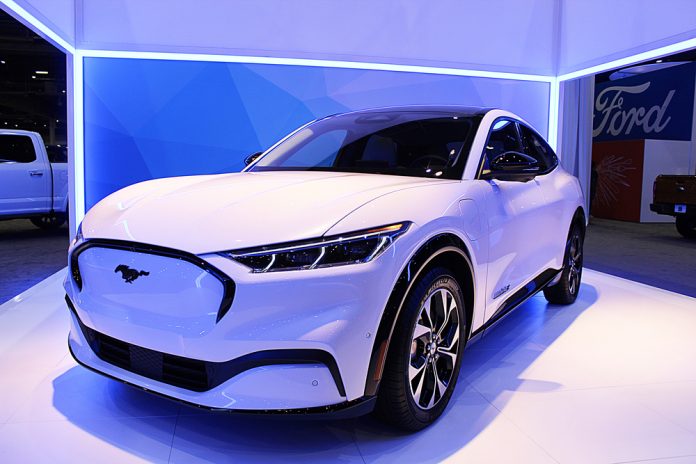Ford has cut prices on last year’s Mach-E lineup as it looks to boost competition with Tesla and improve upon its marginal electric vehicle market share.
The automaker introduced discounts of $3,100, $4,100, $7,600, or $8,100, depending on the model, with all price cuts effective as of February 20. The cheapest variant, the rear-wheel drive edition, received a $3,100 price reduction and now costs $39,895, putting it below the $40,000 mark. The new price tag is uncomfortably close to that of Tesla’s main budget-friendly option, the Model 3, which retails for a minimum of $38,990, according to Edmunds.
All other variants are now between $42,895 and $57,395, with the steepest price drops reserved for the Premium rear-wheel drive, Premium all-wheel drive, and California Route 1 all-wheel drive models. Ford credit is also offering 0%, 72-month financing to eligible Mach-E buyers.
Ford’s decision to slash Mach-E prices comes hot on the heels of Tesla’s most recent price cut, which reduced the Model Y’s price by a minimum of $1,000 until March 1. However, the electric vehicle brand, spurred by concerns of a demand crunch, has been cutting prices far more regularly than its competitors for more than a year, offering new discounts across its lineup on an almost monthly basis since early 2023.
Those fears are hardly exclusive to Tesla, however. Legacy automakers, including Ford, have pulled back from the electric vehicle market over the last few months, citing demand and profitability issues. While battery-powered car sales are certainly rising, adoption has failed to grow as rapidly as some had expected, creating a sense of disillusionment among executives.
But while the electric vehicle segment may have disappointed car manufacturers, that does not mean they will allow Tesla to retain its position at the head of the pack, at least not while government authorities remain committed to an energy transition. Rather, Ford’s Mach-E price cuts signal that the rivalry is far from over. That being said, the blue-oval brand faces a considerable uphill battle if it hopes to unseat Tesla. Its full-year electric vehicle sales, including the F-150 Lightning and Mach-E, surpassed 72,000 in 2023. In that same time frame, Tesla sold more than 1.81 million units.





